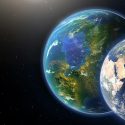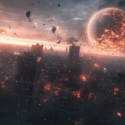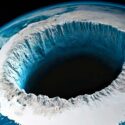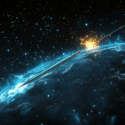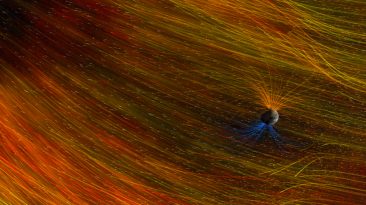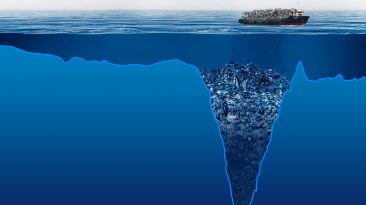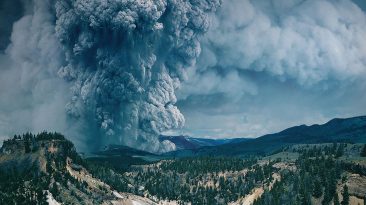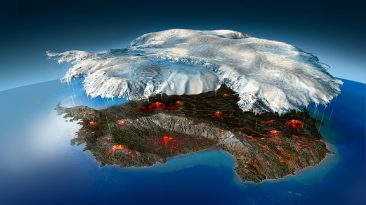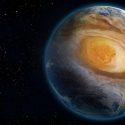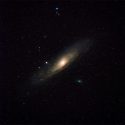A massive earthquake knocks you off your feet. There’s a blinding flash of white, and then you see a tsunami of lava rising on the horizon. A nuclear reaction has gone off the rails. And Earth’s atmosphere is on fire. How long would it be before you exploded into flames? What would happen to our land and oceans? Where could you hide to survive this hellfire?
When you combine two light nuclei to form a single, heavier nucleus, you get what we call a fusion reaction. And if these nuclei happen to be isotopes of hydrogen, you’d create the kind of energy that powers the Sun and other stars. Today, six countries have the recipe to cook up a fusion reaction and make hydrogen bombs. What would happen if a massive bomb like that lit up our atmosphere?
The most efficient fusion reaction is one between two isotopes of hydrogen, deuterium and tritium. It generates more energy at lower temperatures. But fusion like that needs temperatures of about 100 million degrees. That’s about seven times hotter than the center of the Sun. Let’s say you managed to create those conditions and line up the exact amount of fuel needed to set the atmosphere on fire. What sort of infernal nightmare would you be in for?
First, forget any fire drills you’ve ever done. This would be the mother of all firestorms. One you cannot get away from because, well, the atmosphere is everywhere. Plants, buildings and people would ignite instantly. If, by some miracle you didn’t, you would see some pretty awesome stuff.
At 1,510 °C (2,750 °F), steel would begin to melt. Skyscrapers and bridges would ooze molten steel. At 1,700 °C (3,090 °F), deserts would melt, and sand would turn into glass. You’d lose all oceans entirely as the hydrogen in them would feed the fusion reaction. But taking in the sights and sounds might not be on the top of your mind. Couldn’t you just hide deep underground and wait it out?
At about 1,300 °C (2,400 °F), all rock would start to melt. If the ignition lasted long enough, Earth might become a lava world, hot like Mercury. Maybe you are an astronaut exploring a galaxy far, far away while the Earth burned. What would you come back to?
A desolate, lifeless world of molten lava is all that would be left. You’d have to get used to living in a radioactive world where you’d sound funny when you speak. That’s because with all the hydrogen having fused, Earth’s atmosphere would now have helium.
But you’d stop laughing soon enough. Your lungs would fill up with helium pretty quickly because it’s heavier than oxygen. And then you would choke and die. Luckily, nature runs a very tight ship. And you wouldn’t find enough materials on Earth to set the atmosphere on fire. Our oceans only have about 0.016% deuterium, and it was all created during the Big Bang. So it is not exactly renewable. Protium is a lot easier to find but needs impossibly higher temperatures to fuse.
That leaves you with a choice between going on an extraterrestrial bounty hunt for more deuterium or coaxing protium to defy the laws of physics. Unless, of course, you find a way to boil all the oceans to 100 million degrees. Besides, you wouldn’t want to launch nuclear weapons all over the planet to perform this dangerous experiment. That might just set off World War III.
Sources
- “What Is Fusion?”. 2021. fusioned.gat.com.
- “The Fear That a Nuclear Bomb Could Ignite the Atmosphere” Ross Pomeroy. 2019. realclearscience.com.
- “Who Were the Manhattan Project Scientists?”. 2017. online.norwich.edu.
- “Induced Fission – Thermal Neutrons, Chain Reaction, Critical Mass, Moderator, Control Rods, Coolant”. 2021. physicsnet.co.uk.
- “Nuclear Fission | Definition, Reaction & Examples”. 2021. nuclear-power.com.



